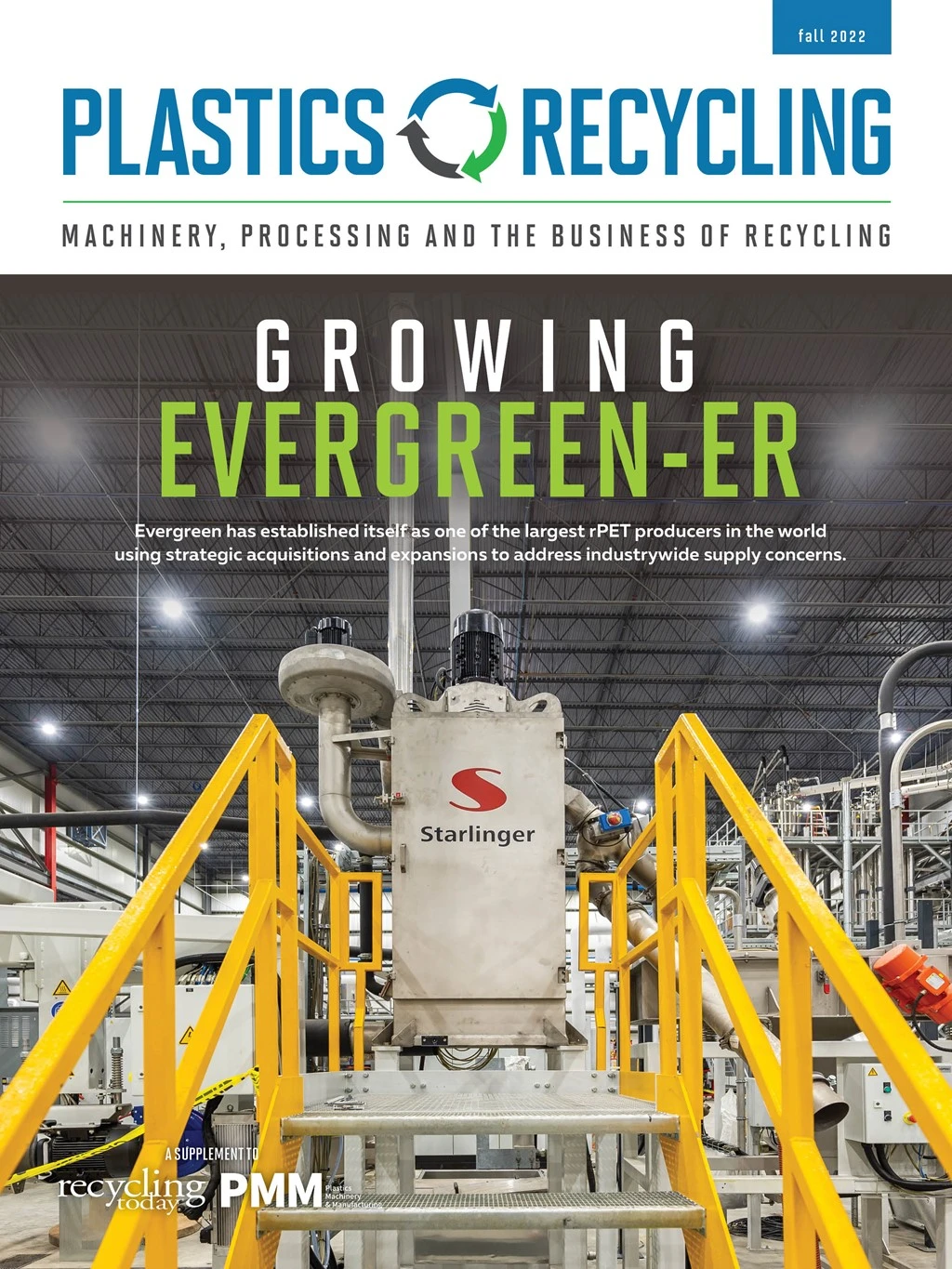
Waste that otherwise might wind up in the ocean is finding a new destiny in a resin released by Sabic in May.
The Saudi Arabian multinational chemical company’s new polybutylene terephthalate (PBT) resin, LNP Elcrin WF0061BiQ, uses ocean-bound polyethylene terephthalate (PET) bottles as a feedstock, according to the company, which has its Americas headquarters based in Houston.
The waste is depolymerized using a proprietary solvent-based process, and the PET precursor chemicals are then purified and upcycled into PBT to conserve natural resources and promote circularity.
Recovered from within 30 miles of a coastline, the PET bottles used in the process are otherwise likely to end up in the ocean, according to Sabic. The new resin, the latest addition to Sabic’s chemically upcycled LNP Elcrin iQ materials, helps reduce the amount of plastic flowing into the world’s oceans while also helping Sabic’s customers incorporate more recycled materials into their products, achieving what the company says are its carbon-neutrality goals and meeting consumer demands for greater sustainability.
“Within the next decade, we anticipate upcycling 10 billion plastic bottles into higher-performing, durable materials that deliver enhanced value to customers,” says Sanjay Mishra, general manager of Technology and Footprint at Sabic.
The resin is reinforced with glass fiber and features nonbrominated, nonchlorinated flame retardancy. Sabic says it offers excellent heat resistance, toughness and stiffness and flows well, making it well-suited for molding thin-wall applications for outdoor use, such as in electrical equipment enclosures. It also can be used in consumer electronics for fan housings in computers and electrical connectors and enclosures.
“Adding to the value of LNP Elcrin iQ resins, the depolymerization technology used to produce them delivers virgin-like properties, allowing these materials to serve as a drop-in replacement for fossil-based PBT,” says Vandita Pai-Paranjape, a staff scientist with Sabic’s Technology and Innovation, Specialties, division. “Currently, the LNP Elcrin iQ portfolio offers consistent quality, colorability, mechanical performance and compliance with certain food-contact regulations.”
By comparison, the more mechanically recycled the plastic used to replace PBT is, the worse the resin performs, she says.

LNP Elcrin iQ resins offer a smaller cradle-to-grave environmental footprint than virgin PBT resin as measured by cumulative energy demand (CED) and global warming potential (GWP), Sabic says. Compared with virgin PBT, a Sabic life-cycle assessment shows LNP Elcrin iQ resins are 29 percent lower for GWP and 43 percent lower for CED.
Pai-Paranjape says that if 100,000 metric tons of pure, virgin PBT were replaced by an equal amount of LNP Elcrin iQ resin, about 123,000 metric tons of greenhouse gas emissions would be avoided—equivalent to the amount emitted by 26,735 vehicles on U.S. roads yearly.
That exchange also would require the reclamation of 8.8 billion discarded single-use, 16.9-ounce PET water bottles and conserve about 652,000 barrels of crude oil annually.
“By replacing virgin material with our resins, customers can help reduce environmental impacts by reusing plastic waste and eliminating halogenated additives,” adds Darpan Parikh, Sabic’s Americas customer fulfillment leader, Specialties.
By using ocean-bound bottles, the new LNP Elcrin WF0061BiQ can help clean up plastic waste, the company says.
“Sabic’s iQ technology could help enable a better living environment for humans and marine creatures,” says Yuanqing He, senior product manager, LNP, Specialties. “It could help improve the ecology of the Earth [and] transform waste into end products, enabling the entire supply chain that makes a significant contribution to the quality of human life.”

Explore the Fall 2022 Plastics Recycling Issue
Check out more from this issue and find your next story to read.
Latest from Recycling Today
- Phoenix Technologies closes Ohio rPET facility
- EPA selects 2 governments in Pennsylvania to receive recycling, waste grants
- NWRA Florida Chapter announces 2025 Legislative Champion Awards
- Goldman Sachs Research: Copper prices to decline in 2026
- Tomra opens London RVM showroom
- Ball Corp. makes European investment
- Harbor Logistics adds business development executive
- Emerald Packaging replaces more than 1M pounds of virgin plastic





